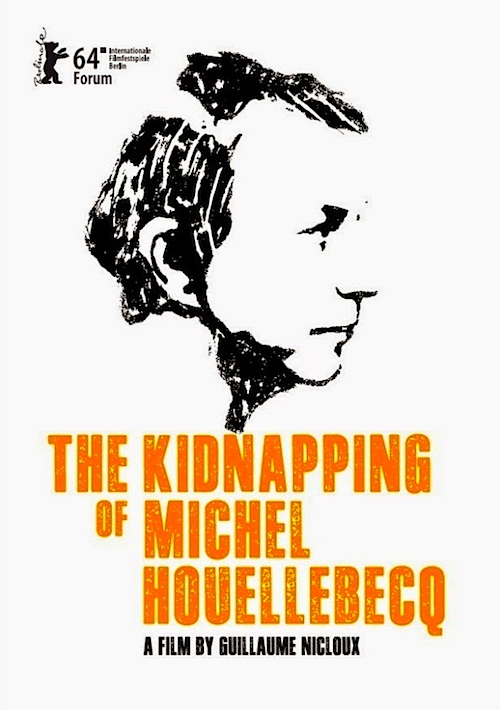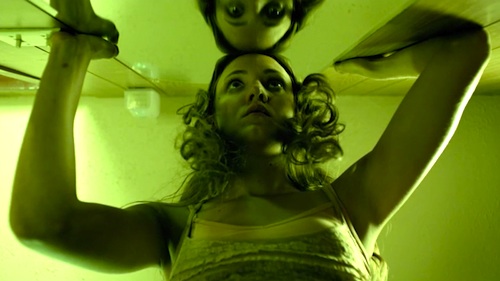By Joe Bendel. So far, the Arab Spring has hardly trickled down at all for women. Malika and her bandmates know this only too well. They are punk to the bone and have plenty to say about their country’s corrupt patriarchal society, but they need cash to express it. More specifically, they must cut a professional grade demo to keep a prospective producer interested. There are ways to make quick money in Tangier, but the drawbacks are considerable, as viewers will witness during Sean Gullette’s Traitors, which screens during the 2014 Tribeca Film Festival.
Malika and her band, Traitors (with no “the”) might sound vaguely familiar to hip readers, because it grew out of the similarly titled short film that played at the 2011 New York Film Festival. Gullette reprises many scenes in the feature version, but there is a new focus on Tangier’s increasing importance as an international drug trafficking hub.
 As befitting any self-respecting punk rock diva, Malika has a strained relationship with her parents, particularly her good for nothing father. Thanks to his gambling debts, they are facing the very real possibility of eviction. Plus, she must raise funds for her band’s studio time. Of course, she gets fired from her French call center job around this time, as well. However, she has caught the eye of Samir, a drug dealer with a proposition. Although she more or less knows better, she still accepts his offer to act as a drug mule. As she talks to her traveling companion, the very pregnant Amal, Malika comes to understand the magnitude of her mistake.
As befitting any self-respecting punk rock diva, Malika has a strained relationship with her parents, particularly her good for nothing father. Thanks to his gambling debts, they are facing the very real possibility of eviction. Plus, she must raise funds for her band’s studio time. Of course, she gets fired from her French call center job around this time, as well. However, she has caught the eye of Samir, a drug dealer with a proposition. Although she more or less knows better, she still accepts his offer to act as a drug mule. As she talks to her traveling companion, the very pregnant Amal, Malika comes to understand the magnitude of her mistake.
In a strange way, Traitors the feature suffers a bit in comparison with Traitors the short. While the former segues into an impressively tight and tense crime drama, its predecessor was a powerful indictment of the everyday misogyny (and even violence) faced by Moroccan women, particularly non-conformists like Malika. Frankly, many viewers (especially those in the know) will want to see more of the rest of Traitors and less of Samir’s thuggish associates.
Still, both incarnations of Traitors prove that Chaimae Ben Acha is a future superstar poised to breakout globally. The camera loves her and she can belt them out like Joan Jett in her prime. This is a richly layered performance, bringing to life a deeply complex character. Malika is unusually intelligent and creative, yet also seriously self-destructive. Artists, you know.
Gullette (co-writer and star of Aronofsky’s Pi) maintains a brisk pace and a nervy vibe, but there is no question this is Ben Acha’s show (although Mourade Zeguendi has his moments as Samir, the complicated drug dealer). Traitors the feature is a good film, but it leaves us wanting to see and hear more from Traitors the band. Maybe that is all part of the master plan. Recommended with conviction for viewers with a punk heart or an interest in women’s rights in North Africa and the Middle East, Traitors screens Sunday (4/20), Tuesday (4/22), Thursday (4/24), and Saturday (4/26) during this year’s Tribeca Film Festival.
LFM GRADE: B+
Posted on April 17th, 11:02pm.






